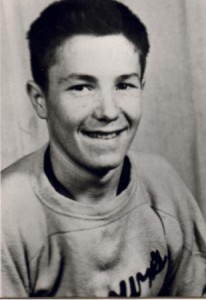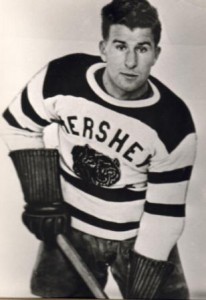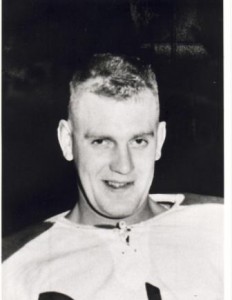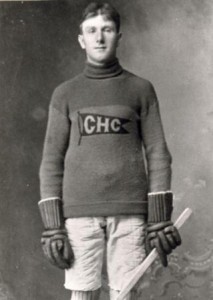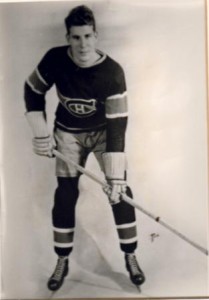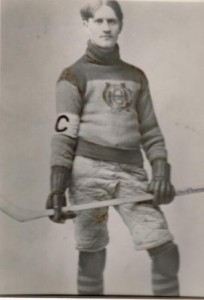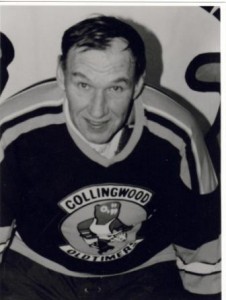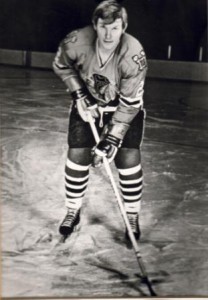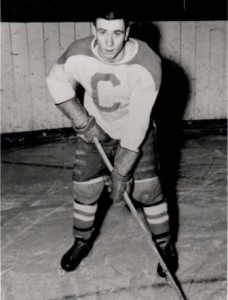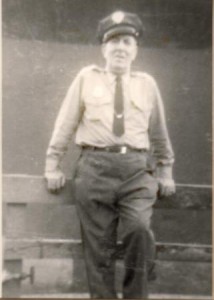His brilliant career cut short by a near fatal accident in his early twenties, Frankie Dance, will still go down as one of the cleverest hockey players ever produced in Collingwood.
Born in Collingwood, he was the youngest son of another Collingwood Hockey Hall of Famer, Jack Dance, a member of Collingwood’s first Intermediate champions in 1910.
He started playing hockey shortly after he learned to walk and came all the way up through the Collingwood Minor Hockey system from Pee Wee to Juvenile.
Frankie was a member of the Collingwood Clubs, winners of the 1949 O.M.H.A. Juvenile championship, a team that went through the entire season without losing a game.
He collected four more provincial medals with the Collingwood Greenshirts, winners of four straight O.H.A. Junior “C” titles in 1950-51-52 and 53. The same team went to the 1954 finals.
Frankie was the playmaker on the great little Greenshirt line with Jim Barrett and Allan Morrill. During that four-year championship span, the Barrett-Morrill-Dance line scored 444 goals, chalked up 347 assists for a total of 791 scoring points.
The passing plays of that line could be described as “poetry in motion”. With that combination there was no such thing as “giving the puck away”. Every move, every play, was made as if the whole operation has been planned on a drawing board a forehand. Dance would lay out that pass dead on the point from right to let with deadly accuracy. He did not even have to lift his head. He knew that either Morrill or Barrett would be on the receiving end and the shot on goal was automatic.
In a game played in Barrie in 1951, Frankie collected ten points with three goals and seven assists.
He graduated to the Intermediate ranks in 1954 and scored thirty-five goals. That Spring he fell from a hydro pole while working as a lineman with the Public Utilities. His life hung in the balance for weeks. His sheer courage helped in his remarkable recovery but the great young athlete’s career was over. His injuries left him crippled for the rest of his life.
His athletic ability was not confined to hockey. Frankie played a creditable game of baseball for Collingwood teams in the early fifties.
He was able to carry on his duties at the Public Utilities Commission for twenty-five years following the accident and was superintendent of the main pumping station at the time of his sudden death, on the job, on the night of Feb. 1st, 1978. Frankie was forty-seven.

